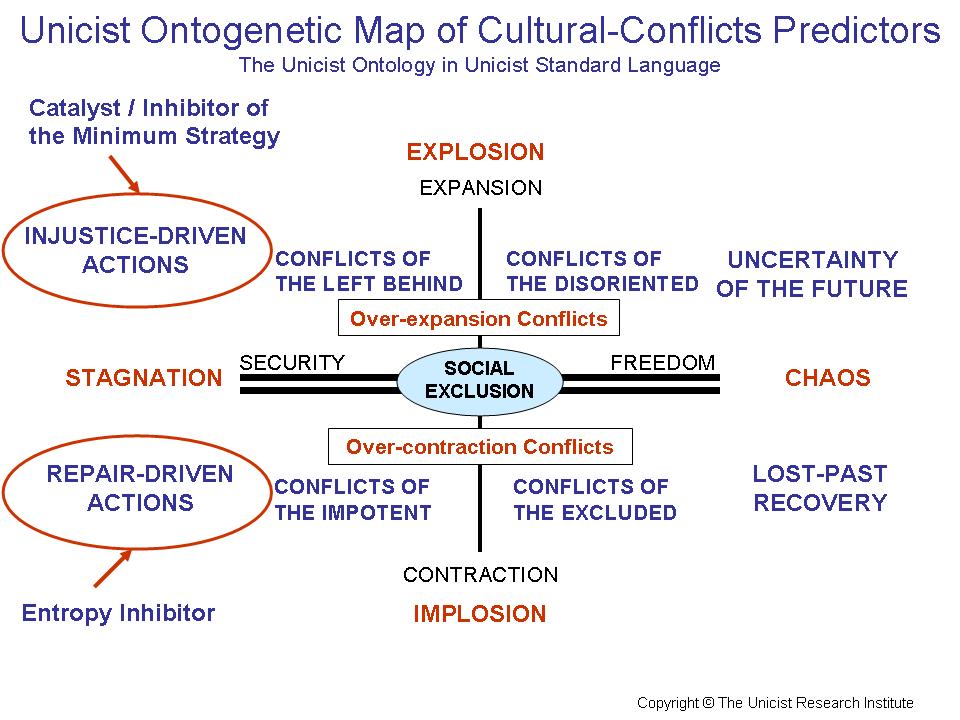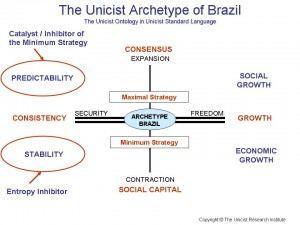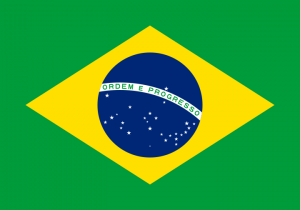Brazil: Conflicts generated by the building of a global power
The conflicts that arouse in Brazil are predictors showing that a cultural change is happening in the country. This change, transforming a developing country into a global leader is the consequence of a long term planning that unavoidably has negative side effects in the short term.

The social conflicts in Brazil are the consequence of the new World-leading role of the country and the need to avoid leaving people behind or disoriented.
The social conflicts that arouse are “explosions” and not “implosions”. Explosions occur when the conflicts are the consequence of an expansion of a country and implosions are the consequence of contraction.
The explosions occurred and will occur because people need to feel included in the benefits this new role produces and consider unfair that the benefits are not noticeable in everyday life for everyone.
Introduction
25 years ago we presented in Brazil the future trends which considered that the country would become a world leader within the next 50 years. The assumption of a world leading role is happening now and the unavoidable side effects are becoming observable.
It has to be considered that 25 years ago Brazil was considered as a world champ in Carnival and Football (Soccer) while the institutional power of the country was not noticeable.
Building “Made in Brazil”
During the last 10 years almost 40 million people accessed the middle class in Brazil. This is a structural change that modifies the economic, political and social scenario. This implied upgrading the social power and generating new expectations that require Brazil to become a brand in the globalized world. Without becoming a global brand Brazilians middle class is endangered.
Petrobras and Embraer are just examples of flagships in the process of installing “Made in Brazil” as a brand in the world.
Installing “Made in Brazil” as a brand requires three elements that need to coexist:
1) A true technological and educational structure
2) A reliable institutionalization
3) An international recognition
This implies a long term investment that unavoidably leaves people behind until they, or the next generation, have the possibility of catching up.
The organization of the FIFA World Cup and the Olympic Games are a way to demonstrate the power of “Made in Brazil”. They are a demonstration of technology, organization capacity and institutionalization. They might be the final step for the global positioning of the Country. That is why they generated many internal and external enemies.
Those that are left behind and those affected by the uncertainty this leading role produces in Brazil, necessarily generate conflicts to demand justice and participating in the benefits of the new role.
These conflicts have aspects in common with the conflicts in Turkey although they are not homologous with them. They are the opposite of the conflicts that occur in Spain and Greece which are based on the action of the “excluded” and the “impotent” who cannot influence the contraction of the environment.
In the following we include the information on the Brazilian archetype which has been published recently:
Brazilian Archetype: describing the power of a global leader
Brazil is a world in itself. There is no other country in the world following the rules of the game that Brazil uses, nor portraying its results in the social, economic and political field.
Its orientation towards the future, the added value work as a way to assert people’s identity, its innovation and nationalism are components that integrate in light of a national project inserted in the culture, executed by the State and managed by politicians.
Consensus as a model
Brazil has a culture that operates on the basis of consensus. This generates, within the social, institutional and individual field a need to understand a reality before taking up a position regarding it.
Likewise, in Brazilian-Portuguese language there are several expressions that help avoid the usage of the first person singular in a conversation.
 The Brazilian consensus model presupposes the development of a singular negotiating capacity regulated by negotiation rules that obviously include consensus as a goal, though not as a path.
The Brazilian consensus model presupposes the development of a singular negotiating capacity regulated by negotiation rules that obviously include consensus as a goal, though not as a path.
The development of this negotiating capacity, based on a culture that came over to colonize rather than predate, generated what today is a world power, real to many, incipient to others.
This implied the end of economic, military or narco-terrorism. The end as far as social legitimacy goes, though not in real terms, for there will always be terrorists who, being marginal, would rather have destruction than acceptance of their own marginality.
This social behavior is based on expansion as a main objective. The creativity to accomplish this allows Brazil a dosage of “marginal” behavior, basis of both academic and technological innovation which is felt today and which was dreamed of 50 years ago.
Social Capital
A country’s development is set by its social capital, political consistency or stability and economic growth.
Out of these three elements, the one that bears most weight is social capital, then comes political stability and last, the necessary, though of least relative weight, economic growth.
Brazil is characterized by its immense social capital if compared with that of other countries in the region, and if compared with those other countries Brazil competes with.
Its difference is outstanding in the region; Brazil has a slightly smaller social capital than the one in developed countries. Society conceives itself as a community.
This community feeling makes the notorious synergy there is among institutions and people possible, while it works as a significant support to political stability and economic growth.
Orientation towards the future
What characterizes Brazil is its orientation toward the future and its great capacity to pay for the price of mistakes.
There are many study centers in this country that are devoted to developing projects, action plans and forecasts of what lies ahead.
This is completely atypical in Latin America, that is why one can say that Brazil is a continent in itself, with own values and a path different from that of the region.
It grows because of its consistent investment in an academic technology model of its own, an acceptance of diversity and an “expansion compulsion”. There is room for everyone in Brazil as long as the rules of the game are abided.
One of the best diplomacies in the world
Brazil is a power with a very strong collective unconsciousness that consolidates in an identity that goes beyond political ideologies.
Consensus to grow is their primary objective, their second objective is to grow, and their third as well. Brazilian culture does not conceive the idea of being worse today than it was the day before.
That is why Brazilians “go crazy” in light of their defeats. Diplomacy, the mechanism to influence outside Brazil in order to uphold such a growth, is settled, and carries a political, commercial and social sense comparable to those of the best diplomacies in the world.
Diplomacy is its main tool to create, almost imperceptibly, a legitimated hegemony in its capacities.
Peter Belohlavek
NOTE: The Unicist Research Institute was the pioneer in complexity science research and became a private global decentralized leading research organization in the field of human adaptive systems. http://www.unicist.org
